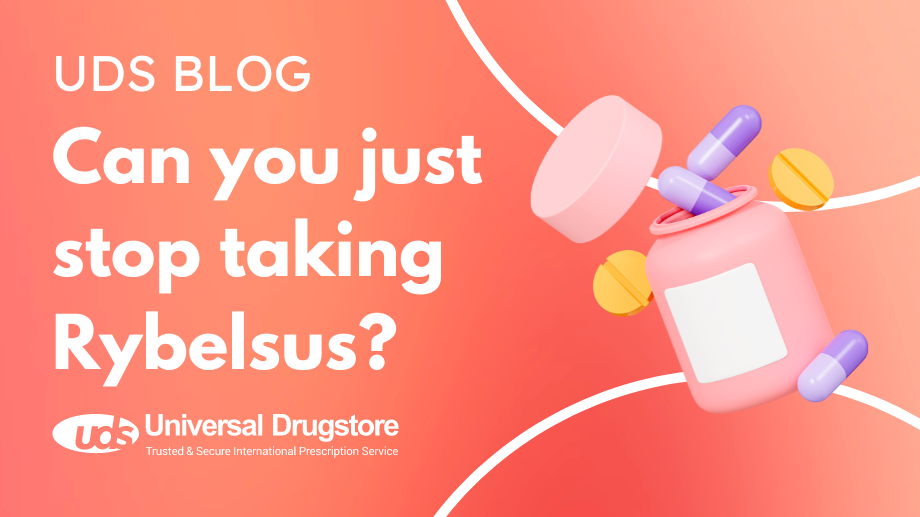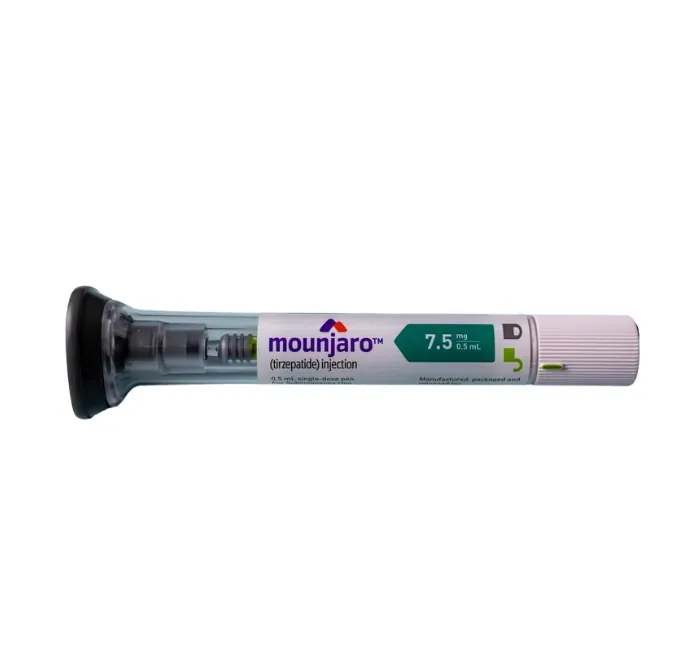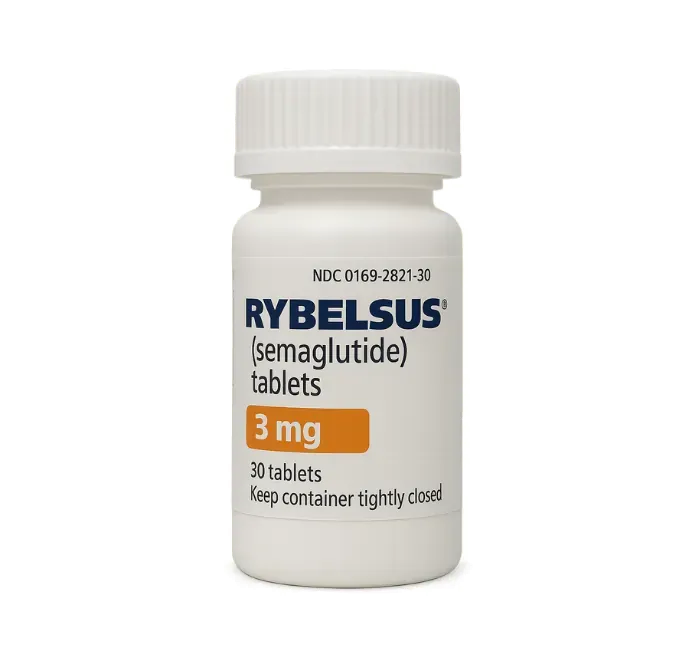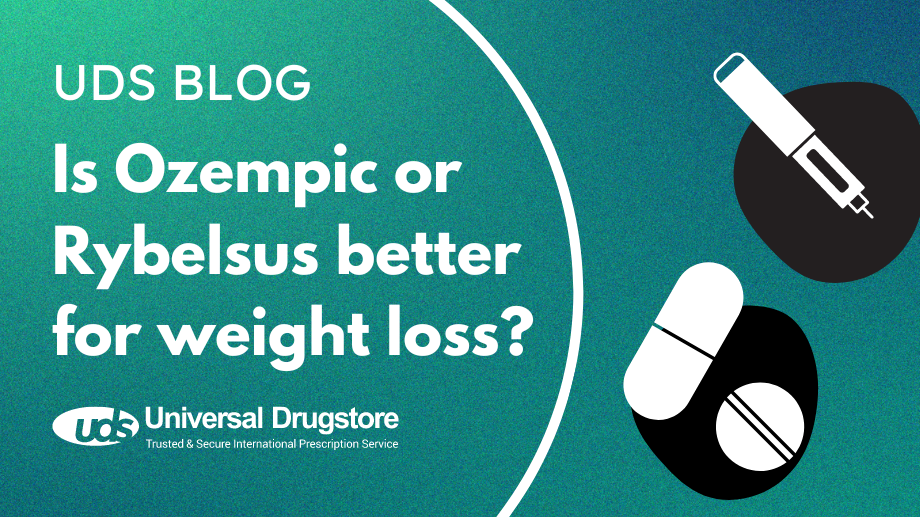Can you just stop taking Rybelsus?

Rybelsus (semaglutide) is an oral medication that should be taken every day along with diet and exercise to lower blood sugar levels if you have type 2 diabetes (T2DM). When taken regularly, it can get your A1C level under 7%. A1C is used to measure your average blood sugar (glucose) level over the past 3 months and 7% is the target level for most people.
While Rybelsus is generally well-tolerated, it may not be effective for everyone and some people can experience some serious side effects. If this is the case, can you just stop taking Rybelsus? Yes, you can stop Rybelsus immediately if you and your healthcare provider decide that it is not safe or effective for you. For example, if you develop a serious side effect such as pancreatitis (inflammation in your pancreas) while taking Rybelsus, your healthcare provider will have you stop taking it right away. Symptoms of pancreatitis include a constant, stabbing stomach pain that may spread toward your back, nausea, vomiting, upset stomach, rapid heartbeat, fever, and tenderness and swelling in your stomach. If your healthcare provider confirms that it is pancreatitis, you should not restart Rybelsus.
If you want to stop taking Rybelsus, talk with your healthcare provider first. It is important to have a plan in place to control your blood sugar before stopping any diabetes treatment.
Rybelsus FAQs
What is Rybelsus used for?
Rybelsus (semaglutide) is a brand-name prescription drug manufactured by Novo Nordisk. It is approved along with diet and exercise by the U.S. Food and Drug Administration (FDA) to improve blood sugar control in adults with T2DM.
Rybelsus has a boxed warning against its use in people with a personal or family history of certain types of thyroid cancer. It is not FDA-approved to treat type 1 diabetes (T1DM).
How does Rybelsus help lower your blood sugar?
The active ingredient in Rybelsus is semaglutide, which belongs to a drug class called glucagon-like peptide 1 or GLP-1 receptor agonists. GLP-1 is a hormone released by your gut when you eat. Rybelsus works by activating GLP-1 receptors. This causes your pancreas to release more insulin while stopping the secretion of sugar from your liver into the bloodstream. It also slows down digestion to help you eat less and lose weight.
What doses of Rybelsus are available?
Rybelsus is available as an oral tablet in the following strengths:
- 3 mg
- 7 mg
- 14 mg
How do you take Rybelsus?
Take Rybelsus exactly as your healthcare provider prescribes it to you. It is typically taken on an empty stomach when you first wake up with no more than 4 ounces of water. It should be taken at least 30 minutes before your first food, beverage, or other oral medications. Swallow Rybelsus tablets whole and do not crush, split, or chew them.
If you miss a dose of Rybelsus, skip the missed dose and go back to your regular schedule.
Are there any drug interactions with Rybelsus?
When Rybelsus is taken with other drugs, it can change how they work or make some side effects more likely or severe. You should ask your healthcare provider if any of the FDA-approved prescription medications, over-the-counter (OTC) drugs, vitamins, or supplements you take may interact with Rybelsus, including:
- Other diabetic medications such as insulin, sulfonylureas, and metformin
- Oral medications, since Rybelsus slows down gastric emptying (how fast your stomach empties) and can change how much of these meds are absorbed
What are the possible side effects of Rybelsus?
The most common side effects of Rybelsus seen in clinical trials when compared to placebo include:
- Nausea
- Diarrhea
- Abdominal pain
- Decreased appetite and weight loss
- Constipation
- Vomiting
Shop Medications
Other possible side effects of Rybelsus can include:
- Bloating
- Indigestion
- Heartburn
- Gas
Rarely, Rybelsus may cause some more serious side effects such as:
- Serious allergic reactions, which can be life-threatening
- Increased risk of certain thyroid tumors including medullary thyroid carcinoma (MTC)
- Pancreatitis (inflammation of the pancreas)
- Worsening diabetic retinopathy
- Low blood sugar (hypoglycemia), especially if it is used with other diabetes medications
- Kidney problems including dehydration and kidney failure
- Gallbladder problems and gallstones
These are not all of the possible adverse events of Rybelsus. You should always seek medical advice from a healthcare professional for any questions or concerns about your medical condition or treatment. You should also read all the patient information, including your Medication Guide that comes with this medication. You can report side effects to the FDA at 1-800-FDA-1088 or www.fda.gov/medwatch.
Who should not take Rybelsus?
Rybelsus should not be taken if you are allergic to semaglutide or any inactive ingredients in this product. In animal studies, semaglutide, the active drug in Rybelsus, caused thyroid tumors in mice and rats. While it is not known if this happens in humans, you should not take this medication if you have a family or personal history of medullary thyroid carcinoma or if you have Multiple Endocrine Neoplasia syndrome type 2.
What should you tell your healthcare provider before starting Rybelsus?
You should be sure your provider is aware of any other medical condition you have before starting Rybelsus, including:
- Kidney or pancreas problems
- Vision problems relating to your T2DM
- Are pregnant or plan to become pregnant
- Are breastfeeding or plan to breastfeed
Can I take Rybelsus at night?
While you can take Rybelsus at night on an empty stomach, it is recommended that you take it with plain water (no more than 4 ounces) when you wake up at least 30 minutes before your first food, beverage, or other oral medications. Taking it with food, beverages other than plain water, or other oral medications can affect how Rybelsus is absorbed and make it less effective.
Can you take Rybelsus every other day?
If you have been prescribed Rybelsus, you may be wondering if it is safe and effective to take it every other day. For it to be effective, it needs to be taken every day. Taking it every other day may not manage your high blood sugar levels and could lead to complications from type 2 diabetes. If you are having unwanted side effects from Rybelsus, notify your healthcare provider before changing your dose or stopping this medication. They may lower your dose or change your treatment plan to help stop any side effects you may experience while still controlling your blood sugar levels.
What happens when you stop taking Rybelsus?
With a half-life of around 1 week, Rybelsus will be in your system for about 5 weeks after your last dose. While it is leaving your body, you may experience some effects such as increased blood sugar, complications from diabetes, and weight gain. It is important to talk with your healthcare provider before changing your dose or stopping Rybelsus. They can put a plan in place to help control your blood sugar levels if you want to stop this medication.
How is Rybelsus used for weight loss?
While it is not approved for weight loss, Rybelsus is sometimes used off-label for this reason. Rybelsus can slow down how quickly your stomach empties its contents into your small intestine. Slower stomach emptying means food stays in your stomach longer after you eat, making you feel full for a longer time and decreasing your urge to eat more. Studies have shown that people taking Rybelsus can lose weight. One recent study showed that taking 50 mg of oral semaglutide led to around a 17% drop in body weight when compared to those taking a placebo. With such promising results, Novo Nordisk plans on seeking FDA approval to use oral semaglutide as a weight loss drug.
Related Medications
- Wegovy (semaglutide)
- Ozempic (semaglutide)
- Mounjaro (tirzepatide)
- Saxenda (liraglutide)
- Victoza (liraglutide)
- Trulicity (dulaglutide)
Sources
- Rybelsus Prescribing Information
- Rybelsus Medication Guide
- Medscape
- Prescriber’s Digital Reference
- John’s Hopkins
- Knop FK, Aroda VR, do Vale RD, Holst-Hansen T, Laursen PN, Rosenstock J, Rubino DM, Garvey WT; OASIS 1 Investigators. Oral semaglutide 50 mg taken once per day in adults with overweight or obesity (OASIS 1): a randomized, double-blind, placebo-controlled, phase 3 trial. Lancet. 2023 Aug 26;402(10403):705-719. doi: 10.1016/S0140-6736(23)01185-6.











